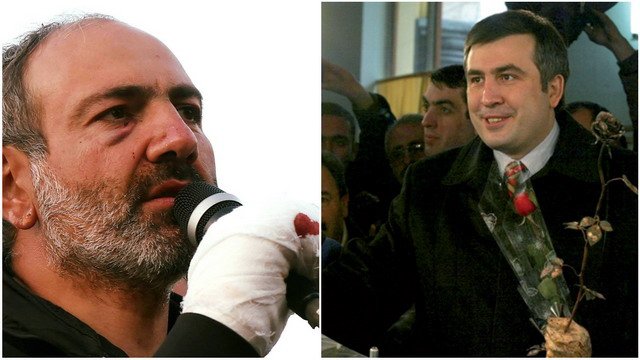“Color revolutions are always explained with the best intentions. But as we know, these intentions cover the road to hell,” the President of Russia, Vladimir Putin, said during the CSTO council session on December 2nd of last year. The context of this statement does not allow us to doubt that he was referring to what happened in Armenia in particular, and what he believed Belarus was able to avoid.
Let’s ignore Russia’s role in “securing that hell” in some cases for a second. Let’s simply note that revolutions (even if we do not call them “color” revolutions) in the post-Soviet Union have at least led to territorial losses. In this regard, let’s compare what happened in Armenia and Georgia. Under Saakashvili’s rule in 2008, Georgia lost territories that were no longer under its control at the time, and where the majority of the population was made up of other ethnic groups. Under Pashinyan’s rule, we lost territories that were under our control and where Armenians were living.
After the Revolution of Roses, Georgia received and continues to receive significant material assistance from the West. After the Velvet Revolution, Armenia did not receive any significant assistance from anyone (Armenia mostly continues to receive the assistance it did “under Serzh”). Even more, we did not even receive moral support from either Russia, Iran, or the West during the war.
Another important difference: in 2008, Russia announced that it is against the restoration of territorial integrity through military means, which Russia believed Saakashvili was trying to do in South Ossetia. In 2020, when Aliyev did that, Russia had a different response. It was mostly as follows: “Of course, it’s not a good thing, but what can they do? Artsakh is internationally recognized as part of Azerbaijan.” “International recognition,” as we know, is used in different ways in different cases.
Read also
What happened in Georgia after the revolution and territorial losses is interesting. During the parliamentary elections in 2012, Saakashvili’s party lost to the Georgian Dream party, and the leader of the Revolution of Roses (which was his honor) accepted that loss, after which people began to pursue him and several people from his circle. In order to avoid that, the former president of Georgia now lives outside of Georgia.
Armenia does not have a tradition in which the authorities accept their loss in elections. However, it is obvious that when Pashinyan is removed from power (when that happens), they will begin to pursue him. That is also a tradition.
Aram Abrahamyan


















































